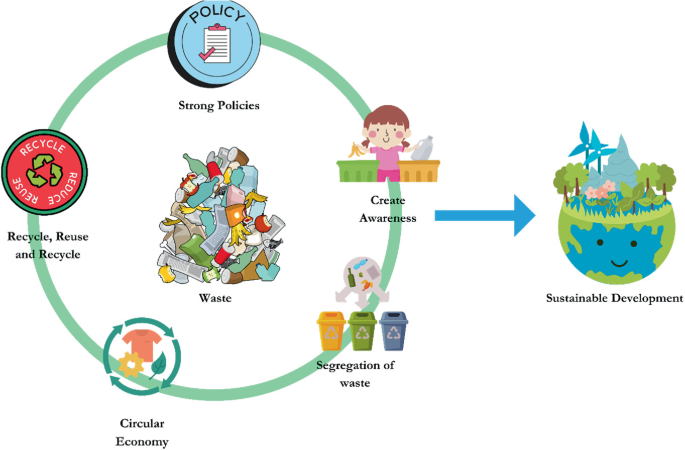Reclaim Waste Fundamentals Explained
Reclaim Waste Fundamentals Explained
Blog Article
The Basic Principles Of Reclaim Waste
Table of ContentsThe 9-Second Trick For Reclaim WasteReclaim Waste Can Be Fun For AnyoneWhat Does Reclaim Waste Mean?Reclaim Waste Fundamentals ExplainedEverything about Reclaim Waste
Through appropriate fluid waste monitoring, companies can lower energy-intensive treatment procedures and disposal expenses. By following a system for managing liquid waste, business can avoid pricey penalties and fines and prevent adverse publicity.(https://giphy.com/channel/reclaimwaste1)Collect depictive examples from numerous factors within the waste stream to make sure precision. Liquid waste, especially harmful ones, poses substantial dangers throughout this step.

is needed when the effluent will certainly be recycled or discharged right into metropolitan swimming pools. Sanitation (e.g., chlorination, ultraviolet light, ozonation) and nutrient elimination (e.g., denitrification and phosphorus eradication) are suggested under rigid guidelines. This stage while doing so is strictly controlled due to the fact that it is when most risks happen. Countless firms breached several liquid waste disposal laws in the last few years.
The Ultimate Guide To Reclaim Waste

Superficial containers include liquid waste that is allowed to vaporize through all-natural procedures. This kind of disposal is subject to rigorous environmental guidelines due to potentially harmful emissions.
The searchings for must be documented, evaluated, and saved not just for submission to regulative authorities but also for making improvements in the future. Share details with pertinent stakeholders (e.g., employees, governing government firms, and neighboring neighborhoods) to keep transparency and accountability.
Comprehending these can assist them successfully handle their procedures and minimize their ecological effect. Companies that can't spend in facilities ought to take into consideration teaming up with the public market for better options.
A Biased View of Reclaim Waste
By applying detailed management systems that consist of treatment and reusing strategies, regular surveillance, threat analyses, and adherence to regional and government laws, industrial facilities can add to the defense of groundwater materials, guaranteeing their schedule for future generations (liquid waste disposal). Let's explore the value of efficient fluid waste monitoring in the industrial sector, concentrating on its implications for securing groundwater resources
The contamination of groundwater resources because of improper liquid waste administration in the commercial sector has significant repercussions for human health, farming, and the atmosphere overall. Some of the potential influences brought on by such pollution include: Polluted Alcohol consumption Water Products: As groundwater supplies a substantial section of our alcohol consumption water, contamination from industrial activities can lead to harmful chemicals and bacteria entering our water supply, posing health threats for humans.
Decreased Agricultural Productivity: Agriculture counts greatly on these details groundwater for irrigation; therefore, polluted water can hinder crop yields, pollute agricultural products, and affect food security. Offered the significance of protecting groundwater resources, it is essential for businesses to take an aggressive position in managing their fluid waste responsibly and avoiding air pollution.
All About Reclaim Waste
Liquid waste can pollute land and contaminate waters. Under the Security of the Environment Operations Act 1997, organizations that create fluid waste are required to manage it in such a way that secures the atmosphere and the neighborhood. Info concerning dealing with and storing liquid waste, replying to spills and reducing liquid waste is readily available in the following fact sheets and support:.
Water, the significance of life, is under constant danger from contamination. The duty of waste monitoring experts in guarding this precious resource can not be overstated. Their solutions include: Septic container and oil trap cleansing: Crucial for stopping dangerous toxins from entering our water supply. Contaminated water and infected effluent administration: Guaranteeing that dangerous liquids are safely eliminated and treated before they can damage our water sources.
Hence, incorporating sustainable fluid waste management into financial planning improves financial stability and secures the atmosphere, demonstrating the value of this approach. In verdict, adopting professional liquid waste monitoring methods is essential for guaranteeing a lasting future, protecting our environment and safeguarding the health of future generations.
When it pertains to throwing away waste, adhering to proper procedures is critical for a wide variety of factors. Proper garbage disposal is not practically tidiness; it has to do with ensuring the health of our setting, health, and the reliable usage of sources. Recognizing the relevance of reliable waste monitoring can help all of us add to a healthier, cleaner planet.
What Does Reclaim Waste Mean?
Efficient waste management aids maintain tidy streets and public spaces, minimizing the visual impact of clutter and ensuring that waste does not hurt wild animals. When waste is not dealt with effectively, it can result in contamination, where dangerous compounds can leach into the dirt, water supply, and the air, producing long-term environmental troubles.
Report this page